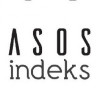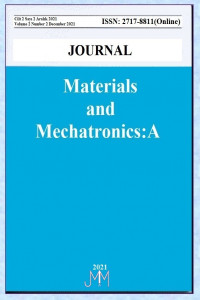Research Article
Aim & Scope
“Journal of Materials and Mechatronics: A (JournalMM)” is a science and technology journal which aims to deliver the latest scientific and technological developments in the field of Metallurgy and Materials, Mechatronics, Mechanical, Automotive, Electrics, Electronics, Biomedical, Chemical, Physics, Computer engineering and related engineering, which are relevant to scientists, engineers, industry and readers.
“Journal of Materials and Mechatronics: A (JournalMM)” is an open access peer-reviewed international scientific journal that accepts articles in all fields of Materials and Mechatronics engineering as well as original engineering articles. The journal also welcomes conference presentations among various disciplines and publishes theoretical and practical studies in related fields. Contributions from academia and industry are also encouraged in a similar way.
Author Guidelines
WRITING RULES
A- GENERAL PRINCIPLES
1. The article should be sent by the corresponding author as a Microsoft Word file.
2. If the work is an original research article or a technical note; It should consist of Turkish Title, Turkish ABSTRACT, Keywords, English Title, ABSTRACT, Keywords, INTRODUCTION, MATERIAL AND METHOD, RESULTS AND DISCUSSION, RESULT, THANKS (if any) and REFERENCES. If the research article is written in English, then only the following sections should consist of: Title, ABSTRACT, Keywords, INTRODUCTION, MATERIALS AND METHODS, RESULTS AND DISCUSSION, CONCLUSION, ACKNOWLEDGEMENTS (If any), REFERENCES.
3. Main section titles are bold and all capitalized; 2nd degree titles are bold and the first letters of the words are uppercase and the others are lowercase; 3rd degree titles should be bold and only the first letter of the first word should be written in capital letters and all other words should be written in lowercase letters.
4. A 1.15 line spacing should be used before and after the main headings. In subtitles, only 1.15 line spacing space should be left between the previous line. No space should be left after the subtitle.
5. The title of the article in Turkish and English should be short and descriptive, the first letters of the words should be capitalized, other words should be small and not more than fifteen words (excluding prepositions). Mathematical formulas should not be in the article title.
6. Main Headings and subheadings should be numbered.
B- RULES FOR PAGE LAYOUT
1. The text should be written on A4 size page with 12 font size, Times New Roman font, 1.15 cm line spacing. The font size can be reduced so that the summary and abstract on the 1st page of the article do not extend to the second page.
2. Margins are 2 cm above the page, 2 cm below, 2 cm to the left and 2 cm to the right.
3. Turkish and English titles should be centered on the page, the rest should be written justified, and 1 cm indent should be left at the beginning of the paragraph.
4. The total number of pages should not exceed 15 pages in original research articles and 7 pages in technical notes. Articles that exceed these page limits will not be considered for publication.
5. Article samples written according to the spelling rules of our journal can be accessed by clicking the links below.
a) Araştırma Makalesi (Türkçe)
b) Research Article (English)
C- ABSTRACT, KEY WORDS, ABSTRACT, KEYWORDS SECTIONS
1. The number of words in each section of Turkish "ABSTRACT and English "ABSTRACT" should be at least 100 words and not more than 250 words.
2. Keywords and Keywords should be written with a minimum of 3 and a maximum of 6 words following the abstracts. In keywords, the initial letter of the keyword must be capitalized. Words should be separated by commas (,) and a space should be left and other words should be written.
D-FIGURES AND SCHEDULES
1. All Figures and Charts should be given on the potrait page style. If the table does not fit on the portrait page style, the Table can be divided into 2 parts and shown as a continuation Table. landscape page style should not be used.
2. "Figure" and "Table" should be used for Figures and Charts (Table 1., Figure 1.). In addition, Figure 1., Table 1. should be written in bold. Explanations and footnotes of the Tables and Figures should be given under the Table and should be written in 8 to 10 font size, and the sentence should not end with with “full stop” at the end of the sentence.
3. Figure should be placed centered on the page. Tables should be placed centered on the page. There should be no vertical lines in the charts.
4. Table titles should be 10 points, left-aligned and above the Table, and the content of the Table should be at least 9 points. Figures, graphics, photographs and etc. should be under the figure with the title "Figure" and left-aligned 10 point font size. Figure and Table should be given in the relevant places in the main document; they should not be uploaded as separate files or added to the end of the text.
E- EQUATIONS
1. Equations should be numbered and the equation number should be shown in parentheses based on the side of the equation and to the right. The main characters and variables should be italic, numbers and mathematical expressions should be plain, with the controls in 12 points. If reference is made in the text, "Equation 1." (The model for… is given in Equation 1). Microsoft Word program should be used in mathematical formulas and other additional programs should not be used.
F- REFERENCES IN THE TEXT
1. In the article, references should be written in the form of (Surname, year) for single author article, (Surname and Surname, year) for two author article, and (Surname et al., Year) for three and more author reference articles.
3. If more than one reference is to be cited, the citations must be separated by (;) and listed from old to new (Surname, 1977; Soyadı et al., 2013).
4. If the author is an unknown the reference must be cited as (Anonymous, Year).
G- UNITS AND NUMBERS
1. For numbers, only the dot (.) should be used as the decimal separator (20.23 instead of 20,23),
2. “/” Sign should not be used for units, it should be made exponential by leaving a space (g L-1 instead of g / L).
3. For very large numbers, it should be separated by three spaces (such as 100 000.85 instead of 100000.85).
H- REFERENCES SECTION
1. References should be between 10 and 12 font size and one cm hanging indent should be left on the second line and next lines of each source. All references should be given in alphabetical order.
2. The names of the journals and conferences in which the source is printed and the unit names published by the thesis should be written clearly (without abbreviation) and the references should be as follows;
Article;
Kayali Y., Yalcın Y., Ülker Ş., Plazma Pasta Borlama Yöntemiyle Borlanmış AISI D2 Çeliğinin Aşınma ve Korozyon Davranışlarının İncelenmesi, Afyon Kocatepe Üniversitesi Fen ve Mühendislik Dergisi 19 (015702), 177-185, 2019.
Kayali Y., Investigation of Diffusion Kinetics of Borided AISI P20 Seel in Microwavw Furnace. Vacuum 121(3), 129-134, 2015.
Mertgenç E., Kesici Ö.F., Kayali Y., Investigation of Wear Properties of Borided Austenitic Stainless Steel Different Temperatures and Times. Materials Research Express 6 (7), 764-776, 2019.
Conference or Symposium;
Barut N., Kayali Y., Mikro Dalga Fırınında Borlanmış AISI P20 Çeliğinin Karakterizasyonu ve Aşınma Davranışı, 16th International Materials Symposium (IMSP’2016), 12-14 Ekim, 2016, Denizli.
Kayalı, Y., Talaş, Ş., Investigation on Wear Behaviors of WC and Ti6Al4V Coated AISI 316L Stainless Steel By Esd Coating Method, 5. International Conference on Welding Technologies and Exhibition, Sarajevo/Bosnia and Herzegovina, September 25-30, 2018, pp: 651-659.
Thesis;
Kayali Y., Bortemperlenmiş Küresel Grafitli Dökme Demirlerin Mekanik Özelikleri ve Aşınma Davranışlarının İncelenmesi, Afyon Kocatepe Üniversitesi Fen Bilimleri Enstitüsü, Yüksek Lisans Tezi (Basılmış), 2006.
Kayali Y., Investigation of Mechanical Properties and Wear Behaviour of Boro-Tempered Ductile Iron, Afyon Kocatepe University Graduate School of Natural and Applied Sciences, Master Thesis (Printed), 2006.
Book or Book Chapter;
Pawlowski L., The Science and Engineering of Thermal Spray Coatings, Wiley Publications, Second Edition, England, pp. 53-66, 2008.
From Web sites or anonymous references;
Anonymous, 2020. An Overview of Cast Iron Types, https://dokumhane.net/kutuphane/dokme-demir-turlerine-genel-bir-bakis/(Erişim Tarihi: 16.02.2020).
Anonim, 2020. Dökme Demir Türlerine Genel Bir Bakış, Afyonkarahisar.
I- UPLOADING THE ARTICLE ON THE SYSTEM
1. When submitting an article, author's name (s), addresses and e-mail should be written clearly in the Cover Page and should not be shortened.
2. The author's names and addresses should not be given in the main text during the sending of the work to system due to the blind referee, and should not be implied in anyway. It should only be written on the cover page.
3. While submitting the article, copyright transfer agreement, (ethical committee document, if needed) should be signed and uploaded to the system.
4. All authors of the article should fulfill and sign the declaration of the conflict of interest. The fulfilled and signed declaration of the conflict of interest should then be scanned and uploaded to the system during the initial manuscript submission. The declaration of the conflict of interest can be found in https://dergipark.org.tr/tr/download/journal-file/23804.
5.All authors of the article should fulfill and sign the declaration of author contribution. The fulfilled and signed declaration of author contribution should then be scanned and uploaded to the system during the initial manuscript submission. The declaration of author contribution can be found in https://dergipark.org.tr/tr/download/journal-file/23805.
6. All responsibility of the work belongs to the authors. Articles should be prepared in accordance with the international scientific ethical rules, which we have mentioned on this page. In addition to the above-mentioned Research and Publication Ethics Statement, The Research and Publication Ethics Declaration Form signed by the responsible author should be uploaded as an additional file at the submission stage.
7. Tables and Figures should not be loaded as supplementary files and should be given in the main document.
8. Plagiarism report (iThenticate will be used) must be loaded. Plagiarism should be below 25 %. in total, and should not exceed 5 % in each source.
Ethical Principles and Publication Policy
Journal of Materials and Mechatronics: A started publishing in 2020. It is published by Yusuf KAYALI. Journal of Materials and Mechatronics: A is a peer-reviewed e-journal featuring original scientific articles in the fields of Metallurgical and Materials Engineering, Mechatronics, Mechanical, Automotive, Electrical, Electronics, Biomedical, Chemical, Physics, Computer Engineering. It is an international refereed scientific journal that will be published twice a year (June and December). There is no article fee and an open access policy has been adopted. The journal accepts scientific articles in English and Turkish via the Dergi Park system. The article evaluation period is approximately 3 months.
Journal of Materials and Mechatronics: A only publishes studies that reflect an original research with its findings and results.
Journal of Materials and Mechatronics: A folllows guides and politics published by Committee on Publication Ethics (COPE) for ethical rules and responsibilities of authors, journal editors/subject editors, reviewers and publisher.
Plagiarism Check
Articles submitted to Journal of Materials and Mechatronics: A, are evaluated after passing through the Plagiarism Detection Program “ithenticate”. The similarity rate criterion is 25% or below. Similarity rate in a single resource should not exceed 5%. The manuscript, which does not pass similarity criterion as a result of the preliminary evaluation, is sent back to the author / authors again to make the necessary corrections without being evaluated.
Pre-checking the manuscript by author
The article submitted by the author must not have been previously published and submitted for evaluation to any journal.
The submission file must be in Microsoft Word 2010 and later.
URLs of references should be provided where available.
The text should be prepared according to rules specified in the author’s guide.
On the submission of the article, the instructions given in the Blind Referee link are applied.
The authors in the first submission sent to the journal cannot be added / removed later.
Blind Referee Process
Journal of Materials and Mechatronics: A is a peer-reviewed academic journal publishing scientific articles that go through the double-blind review process.
For review of submitted manuscripts, at least two referees are appointed by the editor (s) according to the content of the work and the expertise of the referees. All referee evaluation reports are sent electronically and anonymously. The names of the referees who made the assessment are not specified in the reports and in the journal due to the double blind process. However, after the evaluations, a letter of appreciation is sent to the referees.
Blind refereeing processes directly affect the quality of academic publications. The evaluation process is carried out with the principle of double-sided blind review. Referees cannot contact the authors directly, evaluation and referee reports are sent through the e-Mail management system. In this process, evaluation forms and referee reports are sent to the author (s) by the editor. Double-sided blind reviewing helps editors make decisions in an impartial manner to the authors. Authors also have the opportunity to improve their work by obtaining important information about their work.
Decision Making Process
The editors and the publisher send all works submitted for publication to at least two referees who are experts in their fields for evaluation. In case of a dispute between the referees, a third referee is appointed and the article is decided according to the majority’s decision. Evaluation forms filled in by the referees and corrections on the text, if they prefer, are sent to the authors by contacting the responsible author. The final corrected file from the author is re-evaluated by the referees and the field editor, and it is decided whether the study will be published or not.
Privacy
Studies sent to the referees for evaluation should be considered as confidential documents. Studies should not be shown to others and their contents should not be discussed. Where necessary, referees may seek advice from other colleagues, with the permission of the Chief Editor. The Editor-in-Chief can give this permission only in the event of an exceptional condition. The confidentiality rule also includes people who refuse to act as reviewers.
Impartiality Principle
No personal criticism should be made to the authors during the evaluation process. Evaluations should be made in an objective and contributing way.
Specifying a Source of information
The referees are obliged to inform the authors if there are any citations that are not cited in the study. Referees should pay particular attention to works that are not cited in the field or citations that overlap with similar works. The referees should inform the editors in the event of publication that is similar to any previously published work or information.
Information and Conflicts of Interest
Referees should not agree to evaluate if they have any collaborative connections with any author, company or institution for which they are asked for evaluating their work, and should inform editors of the situation as soon as possible.
Referees may not use unpublished works or parts of works in the manuscripts aubmitted to the journal without the written consent of the author (s) for evaluation. The information and ideas obtained during the evaluation should be kept confidential by the referees and should not be used for their own benefit. These rules include those who do not accept the reviewing.
Publication Language
Journal of Materials and Mechatronics: A (JournalMM), reviews research articles written in Turkish and English.
Publication Frequency
In Journal of Materials and Mechatronics: A (JournalMM), which has been publishing issues since 2020, a volume has been published every year since 2020 and each volume consists of 2 issues (June, December).
Open Access Policy
Journal of Materials and Mechatronics: A publishes original research articles without any fee or charge.
All articles accepted and published by Journal of Materials and Mechatronics: A are freely available, openly accessible. We follow the guidelines presented by Budapest Open - Access Initiative (BOAI) regarding the Open-Access.
Wage Policy
Journal of Materials and Mechatronics: A (JournalMM), does not charge the author / authors at any stage (submission, evaluation and publication of articles) for publication procedures.
Price Policy
Journal of Materials and Mechatronics: A (JournalMM) dergisinde makale yayını ve makale süreçlerinin yürütülmesi için ücret talep edilmez.
Journal of Materials and Mechatronics: A (JournalMM) dergisine gönderilen ya da yayın için kabul edilen makaleler için işlem yapma ücreti ya da yayınlama ücreti alınmaz.
Indexes
Journal Boards
Editor-in-Chief

Section Editor-Materials Science and Engineering

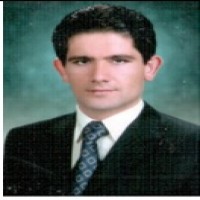
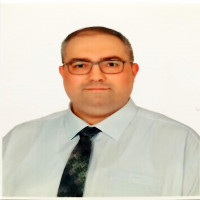
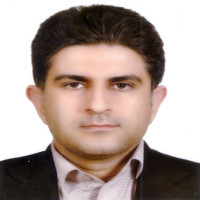
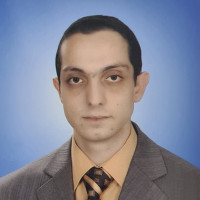
Section Editor-Mechatronics Engineering
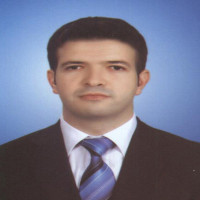


Section Editor-Mechanical Engineering
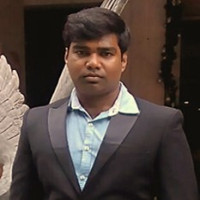




Section Editor-Electrical and Electronic Engineering



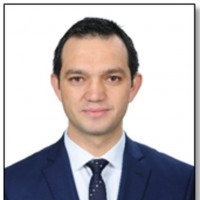
Section Editor-Computer and Software Engineering
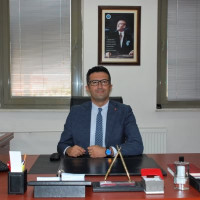
Section Editor-Energy Systems Engineering

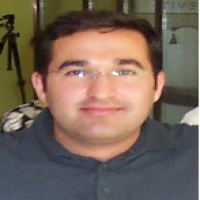
Section Editor- Biomedical Engineering

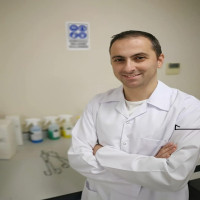
Section Editor- Automotive Engineering
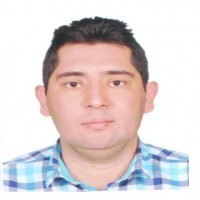
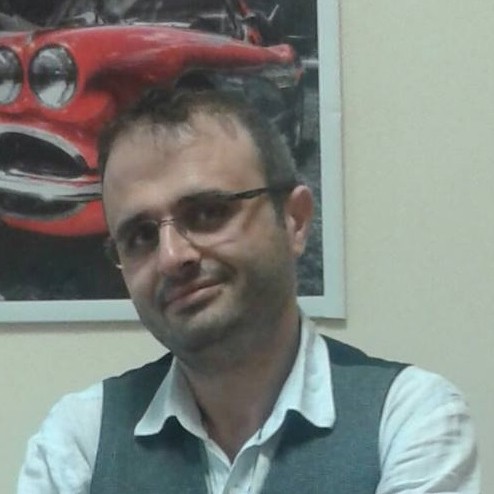
Section Editor-Chemical/Chemical Engineering
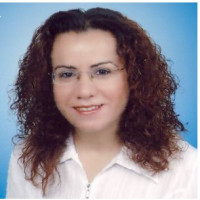
Section Editor-Physics / Physics Engineering

Language Editor

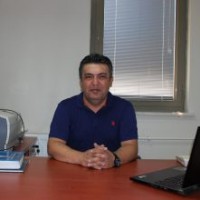

Layout Editor / Secretariat
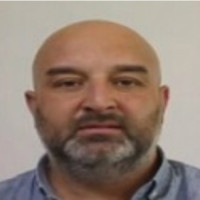


Advisory Board [en]










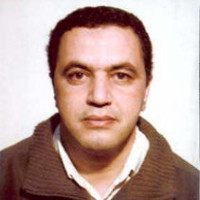

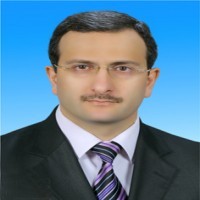

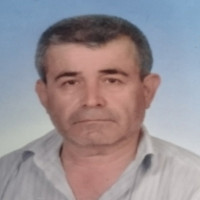

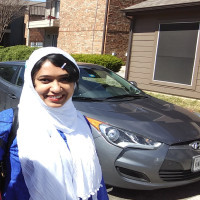
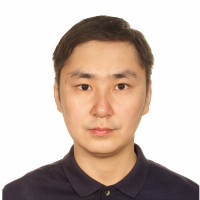

Section Editor- Biomedical Engineering


Section Editor-Mechanical Engineering





Section Editor-Materials Science and Engineering






